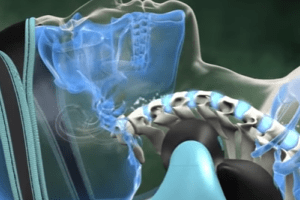
Mild Spinal Device High Failure Rate. A dispute between a spine surgeon and medical device company is raising disturbing questions about the way industry tries to influence medical research, and possibly suppress unfavorable findings that could harm product sales. The conflict, detailed in a New York Times report, involves “Mild,” a spinal product developed and sold […]

Mild Spinal Device High Failure Rate. A dispute between a spine surgeon and medical device company is raising disturbing questions about the way industry tries to influence medical research, and possibly suppress unfavorable findings that could harm product sales. The conflict, detailed in a New York Times report, involves “Mild,” a spinal product developed and sold by Vertos Medical, and Dr. Daryl Fourney, a lead research on a clinical trial for the device, who recently reported an “unacceptably high” failure rate among patients who underwent Mild procedures.
The Mild product is used in a minimally invasive procedure to treat lumbar spinal stenosis, in which a small opening is made in the back and a special device is used to scrape away spinal tissue that has thickened. Intended for people who don’t yet need back surgery, the Mild procedure is meant to free patients from the frequent cortisone shots many people with lumbar spinal stenosis need to remain pain-free.
According to the Times, Dr. Fourney, who is a professor at the University of Saskatchewan in Canada, was a lead research on a small clinical trial – sponsored by Vertos – that followed 10 patients who underwent the Mild procedure for six months.
The trial started out well enough, with most patients reporting improvement at the six-month mark. But later, Dr. Fourney said he began hearing from some patients who were in pain again. Eventually, six had to undergo the very back surgery they had hoped m Mild would allow them to avoid.
Dr. Fourney published the results of the trial in the journal, Neurosurgery, last month. But prior to its publication, he forwarded a draft to Vertos. The company’s reaction was a swift attack on not only Dr. Fourney’s findings, but also his ethics.
In a letter to the doctor, Vertos called his conclusions “gross misrepresentation of the facts.” Then the company went even farther, lodging a misconduct charge against Dr. Fourney with the University of Saskatchewan, claiming he had violated the terms of the study by following patients beyond its six-month term without getting clearance from Vertos first. The company also claims that the patients Dr. Fourney chose for the trial were inappropriate because they were already back surgery candidates.
In his defense, Dr. Fourney says he was ethically obligated to report his findings. He also told the time that the study’s protocol never barred patients in need of back surgery, and pointed out that Vertos had originally marketed Mild as an alternative to back surgery.
Dr. Eugene Carragee, a prominent research and editor of The Spine Journal, told the Times that Vertos’ conduct reminds him “of a time not that long ago when a manufacturer could prevent a study with negative results from being published.”
“Either this company has a poor or odd understanding of what the ethical responsibilities of a researcher are or this was a naked attempt at intimidation.”
Vertos has claimed is not trying to suppress Dr. Fourney’s study, but is only interested in making it accurate. But Carragee pointed to hypocrisy in Vertos’ attack, noting that the studies it uses to tout positive Mild outcomes are, like Dr. Fourney’s, small and limited.
“The thing that gets me about this is the double standard,” said Dr. Carragee told the Times. “The positive findings are pushed far beyond their scientific merit and the limitations of it are being ignored.”
The personal injury attorneys at Parker Waichman LLP offer free, no-obligation case evaluations. For more information, fill out our online contact form or call 1-800-YOURLAWYER (1-800-968-7529).


